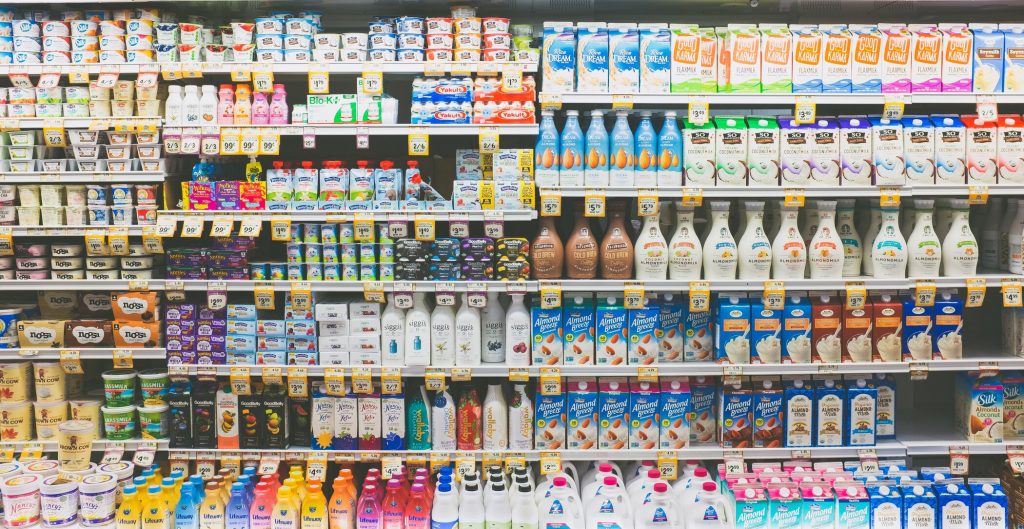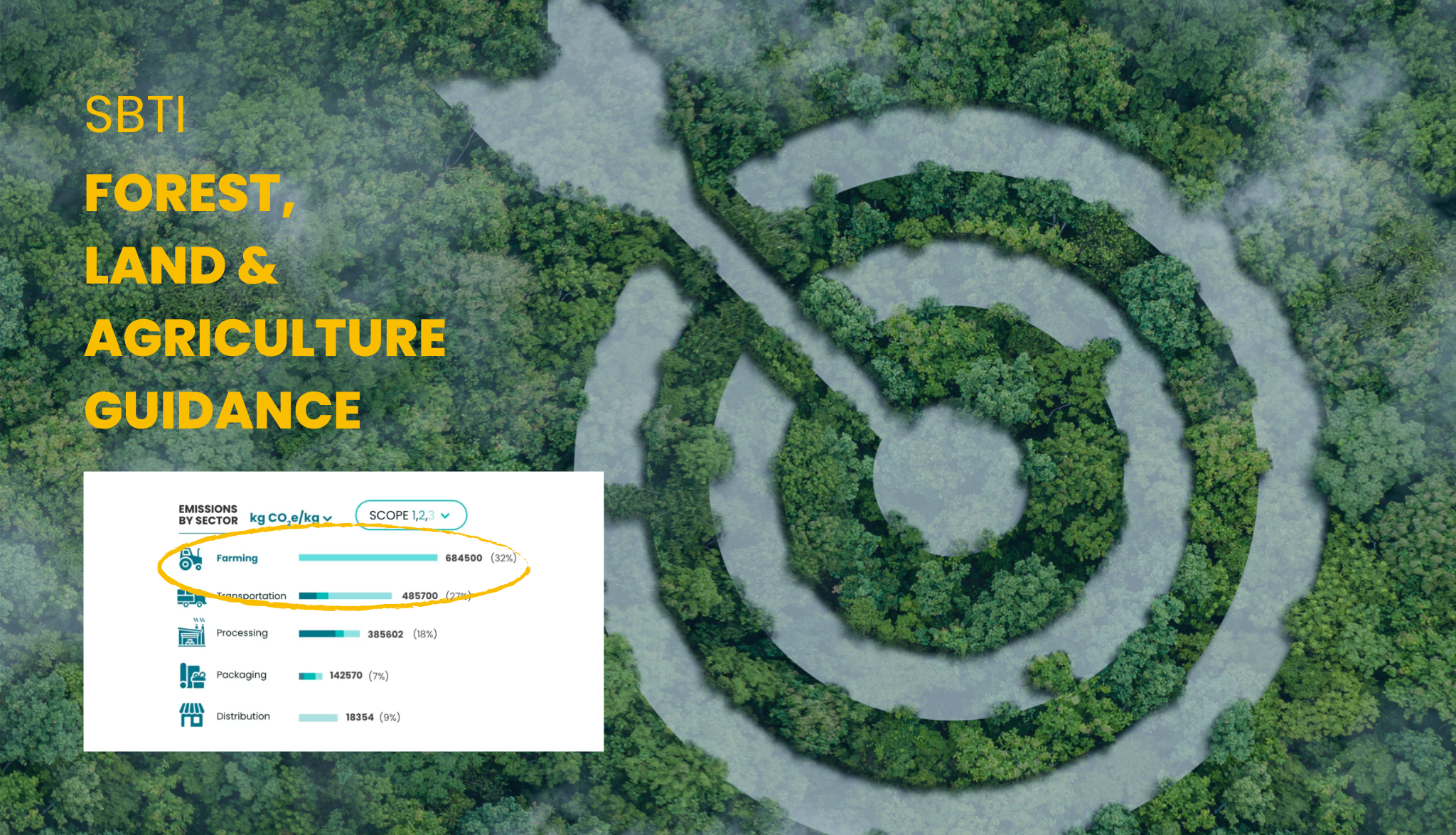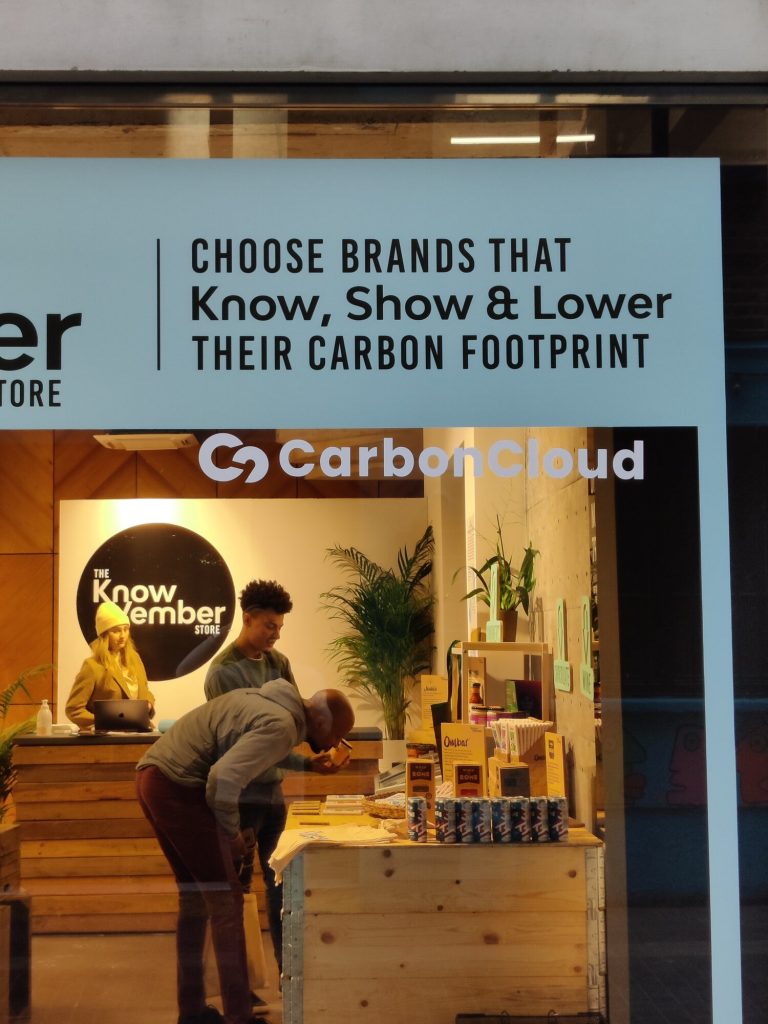Consumer demand for sustainable products is growing: Here’s proof.
If we’ve met before you have probably heard from us that consumer demand for sustainable products is increasing. And what better place to study this trend in-depth than where the action happens: Grocery stores. The latest McKinsey report ‘The path forward for sustainability in European grocery retail’ does exactly that.
But let’s start with the basics: The food industry is one of the biggest polluters, impacting the climate crisis with agriculture, energy, and transportation. According to the McKinsey report, it accounts for a quarter of global greenhouse gas emissions. Did you know that? Of course you did! Evidently, consumers and grocers know that as well.
Not only are consumers aware of this, but it has started to become a selection criterion in their shopping. And in this world, in this system, it’s one of the biggest change drivers. Ready for the hard data?
– The growth rate for food products clearly labeled as sustainable is increasing fourfold compared to the market average. Moreover, during the pandemic, sustainable companies proved more resilient during the market crisis.
– Half of the respondents of the same McKinsey report survey, said that they are willing to pay an extra buck for sustainable products. To be more specific:
– Women, higher-income shoppers, and Gen Z -the emerging market dominator- are more likely to purchase products marketed as sustainable.
– Produce, meat, home, and personal care products are more likely to have a sustainability selection criterion.
– The consumers’ main areas of interest are reducing greenhouse gas emissions and conserving raw materials.
– This trend is only intensifying, in comparison to similar past attitudes.
Newsletter to-go?
Our special today is our Newsletter, including snackable tips, hearty climate knowledge, and digestible industry news delivered to your inbox
The pressure is high – but it’s not only the consumers’ choice that makes a difference. How are retailers i.e., grocery stores, responding to this? Sit tight.
– 100%; all of them; every single respondent in the McKinsey report survey have committed to being climate neutral or climate positive in the long run.
Sidenote: Climate neutrality is certainly a bigger discussion and we had some thoughts on that here.
– More than 30% committed to science-based emission-reduction targets by the end of 2020.
The McKinsey report highlights that sustainability is one of the top three trends that will dominate the grocery retail industry in the coming months. We couldn’t be happier seeing retailer and consumer attitudes towards sustainability grow increasingly positive. But the hard truth is, attitudes won’t make a real change; actions will.
So what can the industry do? Here’s what the McKinsey report recommends:
– Encourage customer demand: Make clear information available to customers regarding sustainability – in essence, increase transparency regarding the policies and actions of retailers as well as supplying companies. (If only there was a platform and a knowledge hub for that, are we right?!)
– Take a good look at their operations: First and foremost, understand (fully) their climate footprint and identify the most impactful areas for improvement. Simple enough to say but requires a fundamental change of mindset.
– Get suppliers on board: Suppliers have the lion’s share in the grocery store footprint – but it is good news, here is where the real impact lies! And we are pasting verbatim from the report so that you don’t accuse us of being too salesy:
‘Retailers can set standards for their suppliers, ensure emissions traceability, and partner with suppliers to create innovative solutions.‘
We can’t help but feel that we have a big part to play in this. If only there was a platform that helps food producers and their suppliers accurately calculate, understand and market their climate footprint, and get the best possible start to lowering it – along with the braveness to do it. Oh, wait…!
This shan't take long...
Ready to meet your portfolio emissions? Let us automate it
Getting started is hard – Simplify it with Automated mapping and jump straight to the action. Reach out to our climate performance experts and see how you can jumpstart your climate strategy.
Related Posts
How to set SBTi FLAG targets – The Food Edition
The Forest Land and Agriculture Guidance from SBTi had retailers and food producers on the edge of their seats until its release in September 2022. Since April 2023 FLAG targets are a requirement and
Retailer climate targets: What’s coming for suppliers?
You spoke; we listened. When we asked food product and brand owners what their biggest pains are, their response was loud and clear: Retailers. Getting listed, pitching, branding, competitive edge,
Why is comparability important in carbon footprints?
Comparing different climate footprints may seem nitty-gritty, sustainability navel-gazing. In actuality, the comparability of climate footprints is central to what humanity can do against climate chan
The future of retail: The climate-transparent KnowVember store experience
Between November 2nd-6th the collective CarbonCloud heart was beating at the KnowVember pop-up store – the first climate-transparent store in the UK where consumers leave knowing the climate footpri







